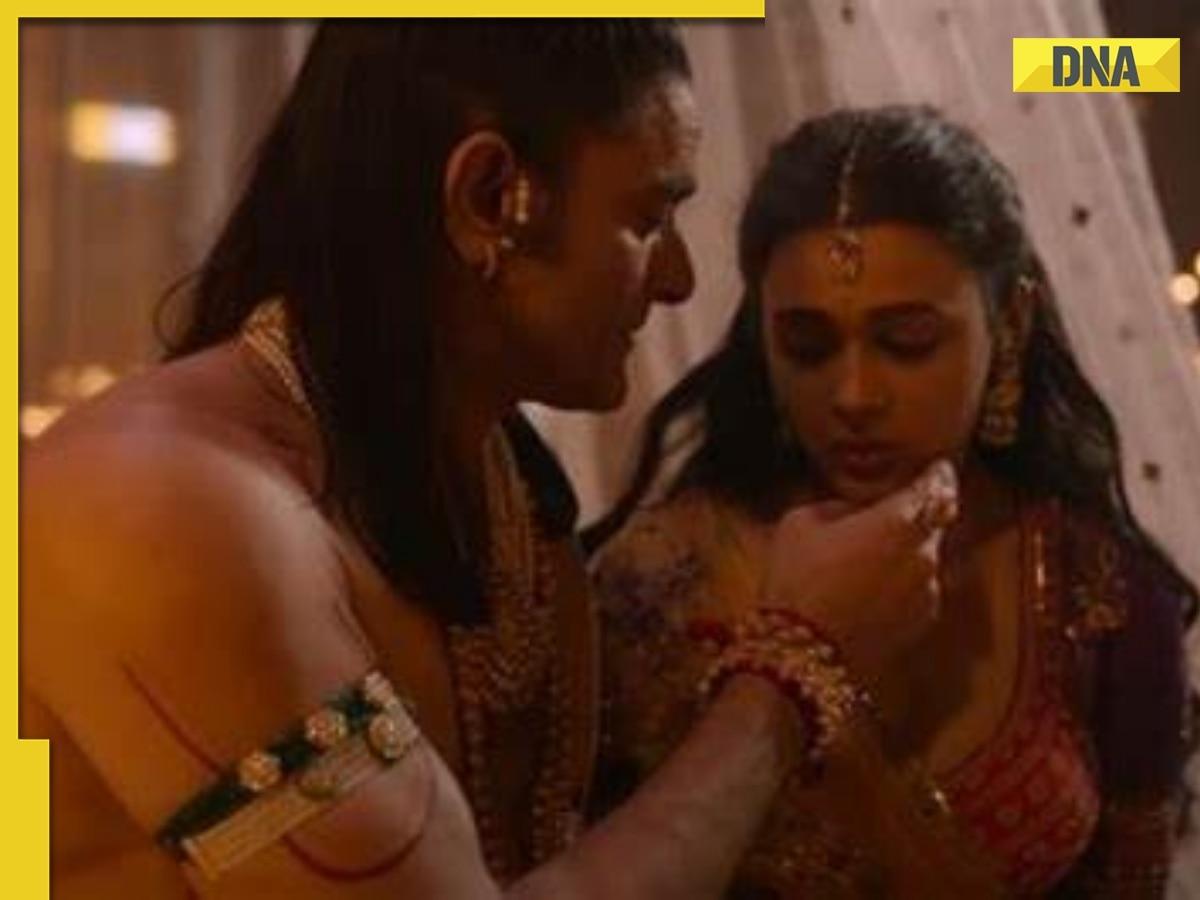
Shalini Pandey recently grabbed headlines with her performance in the Netflix series Maharaj. The actress has now opened up about the ‘charan seva’ scene with Jaideep Ahlawat and revealed how it impacted her.
In a heart-to-heart conversation with Bollywood Hungama, Shalini Pandey discussed the intense and controversial scene known as ‘charan seva’ in Maharaj, a scene that profoundly affected her emotionally. Pandey, known for her sensitivity and thoughtful approach, shared her experiences and the challenges she faced while filming the distressing sequence.
“When I read the script, it was clear that it was a significant and emotionally charged scene,” Pandey shared. “Of course, you think about it and feel strongly about such things. I consider myself to be very sensitive. I try to avoid certain things because of this trait. I don’t use Instagram; it’s not that I get easily hurt, but I am deeply affected by the happenings around me. I even stopped reading newspapers because the negativity they often project can have a substantial impact on my mental state.”
She continued, elaborating on how the scene with Jaideep Ahlawat, who played the godman Maharaj, left her feeling disturbed and overwhelmed. “When I actually performed that scene—the charan seva scene—I didn’t realize its full impact on me until it was over. I completed the scene and suddenly felt the need to leave the room. I told my team that I didn’t want to stay in an enclosed space; I needed fresh air and some time to myself. I felt anxious, and Jaideep Ahlawat recognized and understood my state immediately.”
The gravity of the scene and Pandey’s reaction underscores the deep psychological effect such performances can have on actors. It further reveals how the characters can intrude into the personal emotional space of the actors, making their job incredibly challenging.
Pandey also reflected on her character, Kishori, who initially struck her as naive and gullible. Through the process of intense filming and getting into Kishori’s psyche, Pandey’s perspective began to shift.
. “Initially, when I read the script, I thought Kishori was a ‘bewakoof’ (stupid),” she recalled. “But as I delved deeper into her character, I realized she wasn’t stupid at all; she was simply ignorant of the reality. She had been conditioned to accept her situation without question. When you embody the role and reflect on her experiences, it’s heartbreaking. Then, you come to an understanding that she isn’t foolish; she was just deeply misled and oppressed. I sincerely hoped she could have realized what was happening to her.”
In Maharaj, Jaideep Ahlawat portrays a godman who has cultivated a myth around himself, leading young women to believe in a false ceremony named ‘charan seva’. This deceitful ritual involves the godman convincing the women that being raped by him is a sacred act, undetected and unchallenged by the society around them.
Even before its release, Maharaj stirred considerable controversy. The film’s launch experienced delays due to these disputes. However, upon its release, it garnered significant acclaim from audiences, reflecting its powerful storytelling and strong performances. The story draws from the historical 1862 Maharaj Libel Case, adding depth and historical perspective to its narrative.
Besides Shalini Pandey, the film features Sharvari Wagh, Junaid Khan, and Jaideep Ahlawat in pivotal roles. Notably, Maharaj marks the acting debut of Aamir Khan’s son, Junaid Khan, whose performance has been met with positive reviews and has created a buzz in the industry.
Pandey’s recounting of her experiences while filming Maharaj highlights the emotional toll that storytelling can impose on actors, particularly when engaging with such intense and sensitive material. Her ability to convey such depth and vulnerability truly speaks to her talent and dedication as an actress.
The film Maharaj continues to resonate with viewers, shedding light on dark historical truths and challenging societal norms through its compelling characters and narrative. Pandey’s reflections add a personal dimension to the story, enriching the audience’s understanding of the effort and sensitivity involved in bringing complex stories to life.












